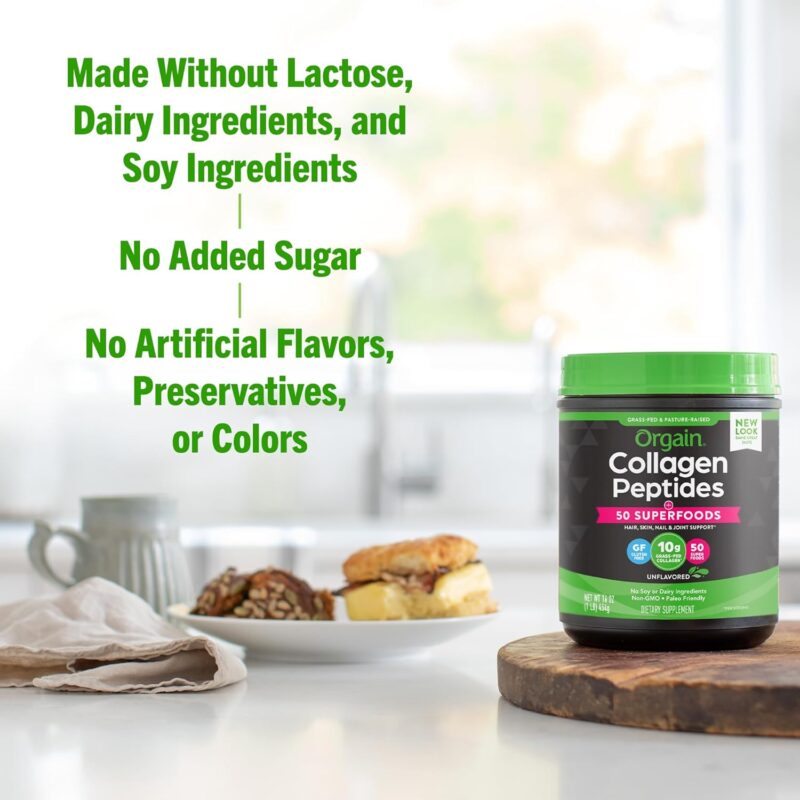Blogs
Are protein powders keto friendly?
Are you a keto fan? Do you want to up your protein while staying low-carb? Don’t fear, fellow keto warriors. We’ve been diving into the heart-pounding question: Are protein powders keto friendly? We’re fitness and fat-burning enthusiasts. This exploration will uncover the mysteries. It will show how protein powders fit into the keto diet puzzle. Get ready to uncover the truth behind these powdered wonders. See if they can boost your keto journey!
Related: How to choose protein powder for weight loss?
Exploring the role of protein powders
Protein powders have long been a staple in the fitness world. They are well-known for building and repairing muscles. But, the ongoing debate is about their compatibility with popular diets like keto. Are protein powders keto friendly? This debate has sparked a new wave of interest and curiosity. We can explore protein powders in the context of ketogenic diets. This way, we can see how these supplements can help or hurt health goals.

For keto dieters, finding low-carb protein is hard. Protein powders offer a handy solution. They provide an easy way to get more protein without adding many carbs. It is key to understand how protein powders, like whey, casein, or plants, interact with ketosis. It helps you make informed choices that support your health and fitness.
What is a ketogenic diet?
A ketogenic diet is a high-fat, low-carbohydrate eating plan that aims to put the body in a state of ketosis. This state makes the body burn fats for energy. It does this instead of carbohydrates. The main goal of a ketogenic diet is to limit carb intake. This causes the liver to make ketones, which are alternative fuel for the body and brain. By eating fewer carbs and more fat, the body starts making molecules called ketones. They become its main fuel. This shift can bring many health benefits. These include weight loss, better energy, and clearer thinking.

Salmon meat contains many natural fats that are good for health.
This approach has become popular in recent years. It has potential benefits for weight loss, blood sugar control, and mental clarity. People on a ketogenic diet may get better energy. They can do this by eating fewer carbs and more healthy fats. This change also reduces body inflammation. But, must to watch protein intake on this diet. Too much protein can stop ketosis. This happens because of gluconeogenesis. It is where the liver turns proteins into glucose.
So are protein powders ? The answer depends on the ingredients used in the powder. Some protein powders contain added sugars or artificial sweeteners. They may kick you out of ketosis. Choosing clean protein sources, like grass-fed whey or collagen, can be better. They are more suitable for a ketogenic diet. Understanding protein powders’ nutrition is key. It helps you stay in ketosis while adding protein. Remember, not all proteins are equal. This is true for supporting your keto journey.
Types of protein powders
Protein powders come in many types. Each has its own benefits. Whey protein powder is very popular. Its fast absorption and high amino acids are well-known. Plant-based protein powders are gaining popularity. They include pea, rice, or hemp protein. They are for those looking for dairy-free alternatives with all the amino acids.

Collagen protein powder is an option for people who can’t have lactose or dairy. They also support joint health and skin flexibility. Another emerging trend is cricket flour protein powder. It is not only sustainable but also full of key nutrients like iron and B12. Exploring the protein powder types can help people tailor their supplements. They can tailor them to their dietary needs and fitness goals.
Related: How to supplement whey protein
Related: What plant-based foods are high in protein?
Protein powder ingredients to avoid
When picking a protein powder for a keto diet, be mindful of certain ingredients. They may not match your nutrition goals. To avoid added sugars is one common ingredient. They can spike blood sugar and hinder ketosis. Artificial sweeteners, like aspartame and sucralose, are bad. They can harm gut health and may cause cravings for more sugary foods.

Also, avoid hydrogenated oils or trans fats in protein powders. They harm the heart and can cause body inflammation. Choose protein powders with natural flavors and sweeteners like stevia or monk fruit. They can help you stick to your keto diet. You still get the benefits of a handy protein supplement. Be diligent about reading labels. Understand the impact of ingredients. Then, make informed choices that support your health on the ketogenic diet.
Best protein powders for keto diets
When following a keto diet, choosing the right protein powder is crucial. It helps you maintain ketosis and support your fitness goals. Two great options for protein powders are whey protein isolate and collagen peptides. Whey protein isolate is low in carbs and sugar. It’s ideal for those on a ketogenic diet. They want to raise their protein intake without changing their macros. Collagen peptides support muscle recovery. They also help joint health. This makes them a good option for keto dieters.

Another good addition to your keto pantry is egg white protein powder. It gives high-quality protein and has little carbs and fat. This powder contains all the amino acids needed for muscle repair and growth. It won’t add extra sugars or carbs to your diet. Adding these diverse protein powders to your keto diet can vary your nutrient intake. It can also keep you true to your dietary goals. Remember to check the ingredient labels of any protein powder you choose. Ensure they match your needs on a ketogenic diet.
How to incorporate protein powders on keto
On a keto diet, adding protein powders can be a game-changer. They help you meet your daily protein needs while keeping your carb intake low. Choose high-quality protein powders, like whey isolate or collagen. They are low in carbs and can fit your keto macros. Try different protein powder flavors and types. This keeps meals interesting and prevents flavor fatigue.

Muffins use protein powder.
One creative way to use protein powders on keto is by adding them to your morning coffee or tea. This adds protein to your drink. It also makes it creamy without adding carbs. Another tasty option is using protein powders in baking recipes. For example, in cakes or muffins, you can replace flour with protein powder. This makes a healthier, high-protein treat. Think outside the typical shakes and smoothies. You can find many new ways to add protein powder to your keto lifestyle.
Conclusion: Protein powders can be
In conclusion, the debate is over. Protein powders are keto friendly. They definitely can be. People on a ketogenic diet can add high-quality protein powders to their routine. They need to choose ones with few carbs and sugars. They won’t ruin their nutritional goals. Some companies plan certain protein powders for consumption. They have few added sugars or artificial ingredients.

For those who want more protein while staying in ketosis, protein powders are a handy option. They are also versatile. You can mix them with water or low-carb drinks for a quick post-workout shake. Or, you can use them in baking to make tasty treats. The key is to read labels . Choose protein powders that fit the ketogenic diet. With some research and testing, anyone on a keto diet can enjoy the benefits of protein powders. They can do so without any guilt or uncertainty.

